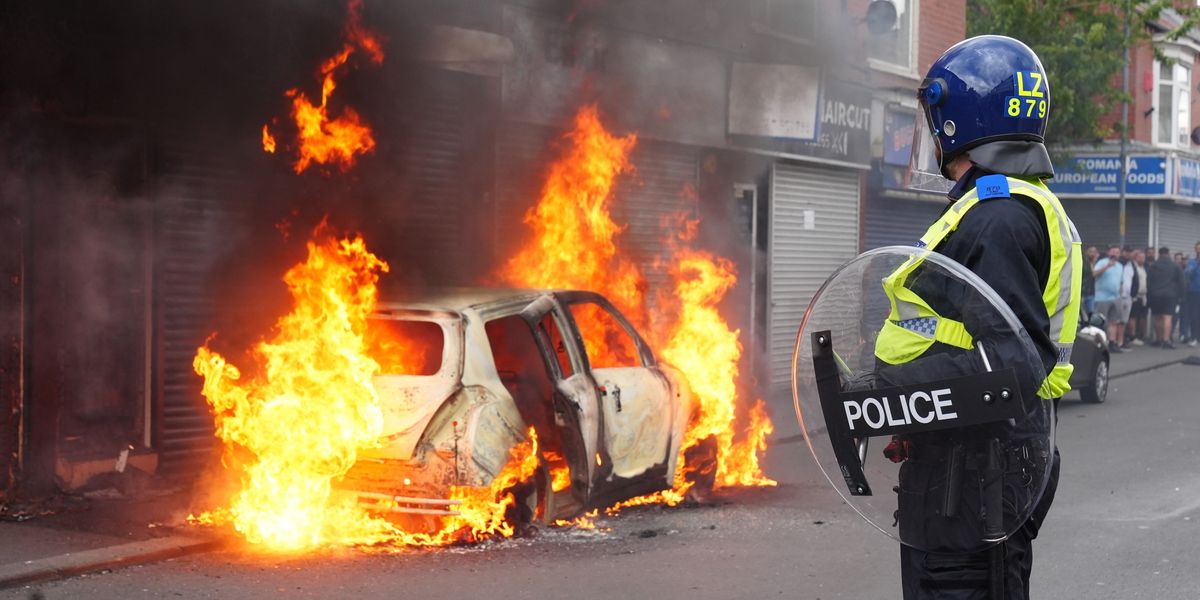The Impact of Parental Accountability in Youth Rioting: A Case Study
In recent months, the UK has witnessed a surge in youth involvement in riots, particularly following the tragic knife attack in Southport in July 2024. The aftermath of this incident has raised significant concerns about the role of young people in civil disorder and the implications of criminalizing their actions. However, a notable case has emerged that highlights an alternative approach to dealing with youth offenders—one that emphasizes parental responsibility over punitive measures.
The Incident: A Teenager’s Reckoning
The case in question revolves around a 14-year-old boy who participated in the riots. Upon discovering their son’s involvement through social media, his parents took the extraordinary step of marching him to the local police station. This act of accountability was not just a show of parental authority; it was a decisive moment that led to a significant outcome. Stephen Parkinson, the head of the Crown Prosecution Service (CPS), revealed that the parents’ stern reprimand was deemed more impactful than any legal repercussions the boy might have faced. Consequently, the authorities chose not to pursue further action against him.
Parkinson’s comments underscore a growing recognition within the criminal justice system that parental involvement can play a crucial role in shaping a young person’s behavior. He noted, "The wrath that had been visited on that child by his parents was more effective than anything the criminal justice system could deliver." This case serves as a poignant reminder of the influence that family dynamics can have on youth behavior, particularly in times of social unrest.
The Broader Context: Youth Involvement in Riots
The riots that erupted across the UK were not isolated incidents but rather a reflection of deeper societal issues. Following the Southport killings, over 600 individuals have been charged in connection with the disorder, with more than 75 of those being minors. This statistic raises critical questions about the motivations behind youth participation in such events. Parkinson highlighted that while some families viewed the riots as a "day out," others, like the aforementioned family, took a more serious stance, recognizing the potential consequences of their child’s actions.
The involvement of young people in riots poses a dilemma for law enforcement and the judicial system. On one hand, there is a need to hold individuals accountable for their actions; on the other, there is a growing awareness of the long-term implications that a criminal record can have on a young person’s future. As Parkinson stated, "I’m fully alive to the consequences of a conviction on someone’s life. So we do have to think very carefully about the decisions we take."
The Role of the Justice System: Balancing Accountability and Rehabilitation
The CPS is increasingly aware of the need to balance accountability with rehabilitation, particularly for young offenders. In cases where minors are involved, the focus is shifting towards diversionary measures rather than punitive actions. For instance, one of the youngest defendants in the riots, a 12-year-old boy, received a 12-month referral order after admitting to two counts of violent disorder. This approach aims to prevent further criminal behavior while allowing the child to learn from their mistakes in a supportive environment.
Moreover, the CPS is investigating potential criminal activities linked to far-right groups during the riots, indicating that the unrest was not solely a product of youth behavior but also influenced by broader societal tensions. Parkinson emphasized the importance of swift and decisive action in prosecuting those involved, stating, "They were relatively easy cases to prosecute—I couldn’t see why we should wait."
Conclusion: A Call for Parental Engagement
The case of the teenage rioter and his parents serves as a compelling example of how parental engagement can effectively address youth misconduct. As the UK grapples with the complexities of youth involvement in civil disorder, it is essential to recognize the pivotal role that families play in shaping behavior. By fostering a culture of accountability and open communication, parents can help steer their children away from paths that lead to criminality.
As society continues to navigate the challenges posed by youth rioting, it is crucial to strike a balance between holding young people accountable for their actions and providing them with the support they need to make better choices in the future. The lessons learned from this incident could pave the way for more effective strategies in addressing youth crime, ultimately leading to a safer and more cohesive society.
